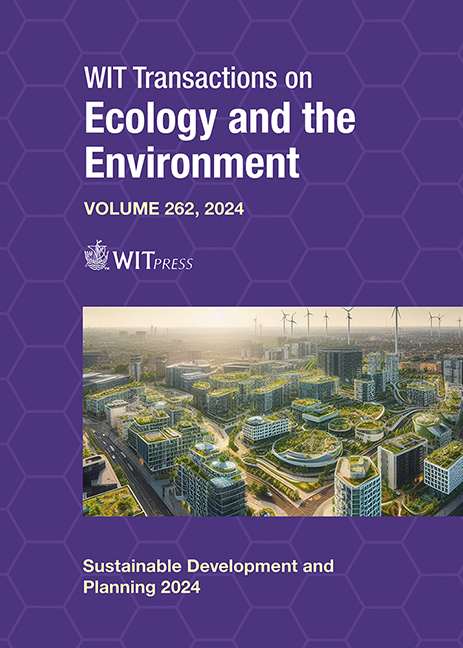ANALYSIS OF SHAH ALAM’S CARBON EMISSIONS BASED ON MALAYSIA’S LOW CARBON CITY FRAMEWORK AND ASSESSMENT
Price
Free (open access)
Transaction
Volume
262
Pages
10
Page Range
835 - 844
Published
2024
Paper DOI
10.2495/SDP240691
Copyright
Author(s)
AZLIN MOHD AZMI, MOHD HANIF MOHD RAMLI, HAIRI PONICHAN, HALIMATUN MOHD YUNUS
Abstract
Urbanisation and reliance on fossil fuels make cities significant contributors to greenhouse gas emissions, rendering them highly vulnerable to climate change risks and impacts. Addressing this issue is crucial for Malaysia, particularly as cities like Shah Alam strive to reduce their carbon footprint. The existing gap in assessing emission inventories using an acceptable framework for low carbon planning in Malaysian cities underscores the need for this study. This research analyses Shah Alam’s emissions using Malaysia’s Low Carbon City Framework and Assessment System (LCCF), introduced in 2011 to guide urban areas towards low carbon development. The study reveals that electricity emissions account for over 90% of the total measured emissions in Shah Alam’s low carbon zones (LCZs). Despite the challenges of accommodating a growing population and fostering economic growth, the LCZs in Shah Alam showed emissions reductions of 18.71%, 7.31% and 9.41% from baseline levels for Section 14, Section 1 and Section 5, respectively. The annual average emissions reductions were 11.4% (Section 14), 3.2% (Section 1) and 3.9% (Section 5), with a combined yearly average reduction of 6.2%. These zones represent only about 1.6% of Shah Alam’s developed area and not all LCCF elements are covered. Based on the emission trends and planning capacity, Shah Alam commits to a 45% absolute emissions reduction by 2035 from baseline year levels of its respective LCZs, with priorities on building energy strategies. This study supports evidence-based low carbon planning, while helping Shah Alam prioritise future strategies and initiatives particularly in the renewable energy and energy efficiency measures.
Keywords
low carbon city, GHG emissions, LCCF, Shah Alam, sustainability target





